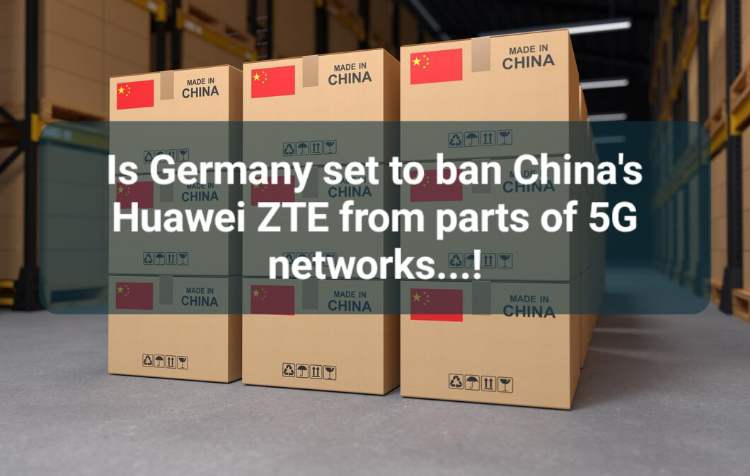Currently, Germany’s Ministry of Interior has decided to completely remove the products of China’s Huawei and ZTE from their country in order to prevent national security risks from China’s products.
Why did you move forward with me but China is a ban on products
Germany’s Ministry of Interior’s decision to completely remove the products of ban China’s Huawei and ZTE from their country. This decision is in line with the growing concern among Western countries about the potential security risks posed by Chinese telecommunications equipment.
The German government has not yet released a detailed plan for how it will implement the ban, but it is expected that it will take several years to fully remove Huawei and ZTE equipment from Germany’s 5G networks. The ban is likely to have a significant impact on the German telecommunications industry, as Huawei and ZTE are two of the major suppliers of 5G equipment.
It is still too early to say what the long-term implications of the German government’s decision will be. However, it is clear that the ban represents a significant escalation of tensions between Germany and China.
Here are some of the potential implications of the ban:
Increased costs for German telecom operators,
German telecom operators will need to invest heavily in new equipment to replace the Huawei and ZTE equipment that is removed from their networks. This could lead to higher prices for consumers.
Delayed rollout of 5G in Germany,
The removal of Huawei and ZTE equipment could slow down the rollout of 5G networks in Germany. This could have a negative impact on the German economy, as 5G is seen as a key driver of growth.
Increased tensions between Germany and China,
The ban is likely to further strain relations between Germany and China. This could have a negative impact on trade and investment between the two countries.
It is important to note that the ban is still in its early stages, and it is possible that the German government could change its mind or modify the ban in the future. However, it is clear that the decision to ban Huawei and ZTE equipment is a significant one that will have a lasting impact on the German telecommunications industry and the relationship between Germany and China.
Which countries face China’s products
Many countries face China’s products, both in terms of competition and reliance. China is the world’s largest exporter of goods, and its products are found in markets all over the world. This gives China a significant amount of economic leverage over other countries.
The countries that are most exposed to competition from Chinese products include,
* United States
* Japan
* South Korea
* Germany
* Vietnam
* Taiwan
* Mexico
* India
* Malaysia
* Thailand
* Bangladesh
These countries are all major exporters of goods, and they compete with China in a wide range of industries, such as electronics, textiles, machinery, and toys.
Other countries are more reliant on Chinese imports. These countries include:
* Australia
* Brazil
* Chile
* Indonesia
* Philippines
* Saudi Arabia
* United Arab Emirates
These countries import a large share of their manufactured goods from China. This makes them more vulnerable to disruptions in the Chinese supply chain, such as those caused by the COVID-19 pandemic.
The rise of China as a manufacturing powerhouse has had a significant impact on the global economy. Chinese products have helped to reduce prices for consumers around the world, but they have also put pressure on domestic industries in many countries. Governments are grappling with how to balance the benefits of trade with China with the risks to national security and economic competitiveness.
In recent years, there has been a growing trend of countries trying to reduce their reliance on China’s products. This is due to a number of factors, including concerns about national security, human rights abuses in China, and the COVID-19 pandemic.

